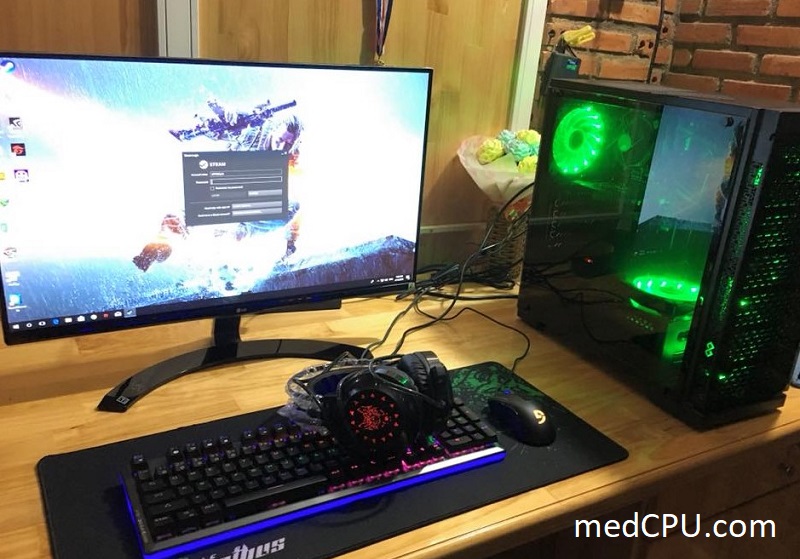Online gaming and standalone PC gaming have become a sensation and popular diversion. According to research captured in Washington Post, March 2020 was the time PC gaming skyrocketed due to the lockdown and COVID situation. Another reason for the exponential growth of PC gaming is online game hosting and gaming competition, which has become prominent.
Again, according to another report, 244 million people regularly play PC games in the US. As per their expectation, this count will continue to surge. However, cybercriminals find the gaming sector attractive to make money or steal personal details. So the question arises among gamers – “how to protect our gaming PC?” This article is a quick walkthrough of how to protect your gaming PC from online security threats.
How to protect your gaming PC?
Here is a list of some ways for taking care of gaming PC from cyber threats.
Install anti-malware and antivirus software: Anti-malware and antivirus play a significant role in protecting gaming PCs. Gamers often install cracks or download helping files from unauthenticated websites. Cybercriminals keep baiting sites for gamers so that they download malicious files and programs. These malware programs spy and share the gamers’ data, online behavior, and login credentials with their owners. Thus, to protect gaming PCs from malware threats, anti-malware and antivirus become beneficial.

Keep your OS up-to-date: Whether you are using iOS, Windows, Linux, or any other operating system, every company provides patch updates to fix bugs that they find in their OS product. They do so to protect your gaming PC from getting breached when you play online. Security experts develop these patches & release the update where they fix bugs and loopholes that security researchers report.
Do not visit or play through unsafe websites: Online game streaming platforms and games hosted in the cloud have become a new trend. Cybercriminals use phishing page (that looks legitimate) to steal gamers’ login credentials and other Personally Identifiable Information (PII) and sell them on the dark web. Again, cybercriminals can steal & read your data in transit if the data is not encrypted.
Therefore, gamers and users must remain vigilant to check whether the websites have an SSL certificate. Gaming websites with expired SSL certificates could be suspicious and do not provide SSL encryption.
Say no to pirated games & unofficial apps: Although you might think pirated versions of games will save you money, the repercussions are deadly. Pirated copies of games, game-related supporting apps & cracked versions of game files often come with malicious programs attached. Gamers might not notice them. Many antiviruses cannot detect them because they remain merged with a legitimate file.
As you trigger or download them from unofficial sites, they covertly steal your financial details, login credentials, etc. On top of that, the use of pirated games is illegal and considered a cybercrime. Therefore, security professionals warn gamers not to use pirated sites and unofficial game downloads.
Run games in standard user mode: We all know that operating systems offer user mode and admin mode. We can switch between multiple modes. Working in admin mode can be devastating as cybercriminals get the highest privileges when gaining access in admin mode. According to BeyondTrust’s report, 90 percent of vulnerabilities & attack vectors in Windows software get reduced with standard user mode instead of an admin account. If you are not technically sound or aware of Windows security or other OS security works, create a ‘standard’ user in your gaming PC. Whenever you open your PC to play games (online or offline), use the standard account/mode.

Never open suspicious emails or links: Emails have become a standard online communication means. Whether you register for a game online or log in to game stream platforms via magic links, an email will pop up in your inbox. Again, many games and online gaming platforms offer discounts, points, offers, etc., so you can buy gaming assets from online marketplaces. Cybercriminals also research your details (like email ID, phone number, the games you play, etc.) and will send luring emails, containing links and buttons.
When you click them, it will redirect you to an unsolicited site leading to a drive-by download attack. In drive-by download, the attacker drives the victim into downloading malicious programs by redirecting them to malicious sites. Threat actors can also attach malware to the emails and instruct you to download the file for use. That is another way cybercriminals target gamers. So, gamers must remain vigilant about what links they click and what attachments they open.
Defending network using firewalls: Firewalls are another essential set of tools that monitor network traffic & protect gaming PCs from potential threats. If a PC gamer turns on the default software firewall or installs one on their system, it will block unwanted or malicious inbound data packets that might be a cyber threat when you play games online. Many cybercriminals send out pings on opened ports and wait for a response.
Once they find a vulnerable port open on the victim’s end, they exploit it causing damage to the PC gamer. A firewall will prevent your gaming PC from responding to such ping requests & block those sources that are not authorized.
Conclusion
We hope this article has provided a crisp idea of how to protect your gaming PC. Taking care of the gaming PC from a security perspective is essential. Again, if you are a company that delivers online gaming services, ensure you have an SSL certificate or SSL encryption for your website.
Read more: https://medcpu.com/how-much-does-it-cost-to-build-a-gaming-pc/

Eyal Ephrat serves as the co-founder and CEO of medCPU.com, where technology is making significant strides in the field of medicine. Through his experience in purchasing PC and laptop equipment and various other tech products, Eyal Ephrat contributes valuable insights to medCPU’s mission.




